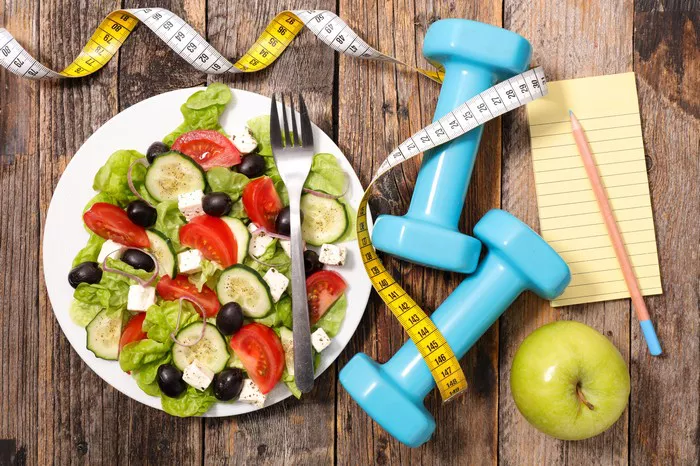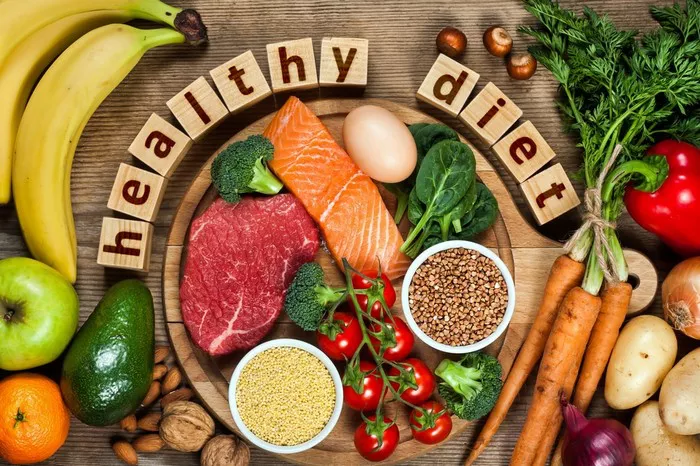In the ever-evolving world of dietary approaches, the 21 Day Diet has gained significant attention as a structured plan that promises not only weight loss but also a reset of eating habits and an improvement in overall health. Many individuals are drawn to its seemingly manageable time frame of just three weeks, hoping to achieve tangible results within a relatively short period. But what exactly is the 21 Day Diet? How does it work, what are its components, and what can one expect from embarking on this dietary journey? In this in-depth essay, we will dissect the 21 Day Diet from its origins to its various phases, the foods it recommends, potential benefits, possible drawbacks, and much more, to provide you with a thorough understanding of this popular diet plan.
Macronutrient Balance
Carbohydrates: While carbohydrates are an essential energy source, the diet advocates for choosing complex carbohydrates over simple ones. Complex carbs, found in whole grains, legumes, and starchy vegetables, are digested more slowly, leading to a gradual release of glucose into the bloodstream. This helps maintain stable blood sugar levels, preventing energy crashes and cravings. Simple carbohydrates like refined sugars and white flour products are limited as they can cause rapid spikes in blood sugar followed by sharp drops, which can disrupt energy levels and lead to overeating.
Proteins: Adequate protein intake is crucial for several reasons. Proteins are the building blocks of our body, helping to repair tissues, build muscle, and boost metabolism. Lean protein sources like chicken, fish, beans, and tofu are recommended as they provide essential amino acids without excessive amounts of saturated fat. Protein also has a high satiety factor, meaning it keeps you feeling full for longer, which can aid in controlling calorie intake.
Fats: The diet emphasizes the consumption of healthy fats, particularly unsaturated fats. Sources such as avocados, nuts, seeds, and olive oil are rich in monounsaturated and polyunsaturated fats, which are beneficial for heart health, brain function, and overall well-being. Saturated fats, found in fatty cuts of red meat and full-fat dairy products, are consumed in moderation, while trans fats, commonly found in processed and fried foods, are avoided as they have been linked to increased risk of heart disease and other health issues.
Micronutrient Adequacy
Ensuring an adequate intake of micronutrients – vitamins and minerals – is another key principle of the 21 Day Diet. By focusing on a wide variety of fruits, vegetables, whole grains, and lean proteins, the diet aims to provide the body with the necessary nutrients for optimal functioning. For example, fruits and vegetables are rich in vitamins C, E, and various B vitamins, as well as minerals like potassium, magnesium, and iron. Whole grains contribute additional B vitamins, along with fiber and minerals like zinc. Lean proteins supply essential minerals such as iron and zinc, which are important for immune function and oxygen transport in the body.
Hydration: Staying properly hydrated is considered vital throughout the 21 Day Diet. Water is involved in numerous bodily functions, including digestion, nutrient absorption, and waste removal. Adequate hydration also helps maintain healthy skin, supports joint health, and can even aid in weight management by promoting feelings of fullness. As mentioned earlier, in addition to plain water, herbal teas and freshly made fruit and vegetable juices (without added sugars) can contribute to overall hydration.
The Potential Benefits of the 21 Day Diet
Weight Loss: One of the primary attractions of the 21 Day Diet is its potential for weight loss. By following the structured phases that focus on reducing processed foods, controlling portion sizes, and emphasizing nutrient-dense options, many individuals experience a decrease in calorie intake. The combination of a balanced macronutrient profile, with an appropriate amount of protein to boost metabolism and increase satiety, along with the increased consumption of fiber-rich foods that promote feelings of fullness, can lead to a steady reduction in body weight over the 21-day period. Additionally, the initial detox phase may help reduce water retention and bloating, contributing to a visible difference on the scale and in how clothes fit.
Improved Digestion: The emphasis on whole, unprocessed foods rich in fiber, such as fruits, vegetables, whole grains, and legumes, can have a significant positive impact on digestion. Fiber helps to add bulk to the stool, facilitating regular bowel movements and preventing constipation. The variety of foods included in the diet also promotes a healthy gut microbiome, as different plant-based foods contain prebiotics that feed beneficial gut bacteria. A healthy gut is linked to better nutrient absorption, improved immune function, and overall well-being.
Increased Energy Levels: Choosing complex carbohydrates over simple ones, along with a balanced intake of proteins and fats, helps maintain stable blood sugar levels throughout the day. This prevents the energy crashes that often occur after consuming foods high in refined sugars. The body is able to access a steady supply of energy from the nutrients in the diet, resulting in increased energy levels and improved productivity. Moreover, the detoxification phase may remove substances that were previously weighing the body down and interfering with its optimal functioning, further enhancing energy and vitality.
Better Nutritional Intake: The 21 Day Diet encourages the consumption of a wide range of fruits, vegetables, whole grains, lean proteins, and healthy fats, which ensures a more comprehensive intake of essential vitamins, minerals, and other nutrients. This can help correct any deficiencies that may have existed prior to starting the diet and support various bodily functions, from immune health to maintaining healthy skin, hair, and nails. For example, the increased intake of fruits and vegetables provides antioxidants that protect cells from damage, while lean proteins supply the necessary amino acids for muscle repair and growth.
Establishment of Healthy Eating Habits: Perhaps one of the most significant long-term benefits of the 21 Day Diet is the potential to establish new, healthy eating habits. By adhering to the structured phases and gradually introducing and maintaining a balanced diet, individuals may find it easier to make conscious food choices even after the 21 days are over. The focus on whole, nutrient-dense foods becomes more ingrained, and the reliance on processed and junk foods may decrease, setting the stage for a lifetime of better health and weight management.
The Possible Drawbacks of the 21 Day Diet
Initial Discomfort: During the detox phase, some individuals may experience initial discomfort as their bodies adjust to the significant changes in diet. This can include symptoms like headaches, fatigue, irritability, or changes in bowel movements. These effects are often attributed to the body withdrawing from substances like caffeine, sugar, or processed foods that it may have been accustomed to. While these symptoms are usually temporary and subside within a few days, they can make the start of the diet challenging for some people.
Conclusion
In conclusion, the 21 Day Diet is a strict weight loss program that promises rapid results through a controlled diet plan spread over three phases. While it can be effective for some individuals, it is not suitable for everyone, particularly those with specific health conditions or those who may not tolerate extreme dietary restrictions well.
Related Topics:


























